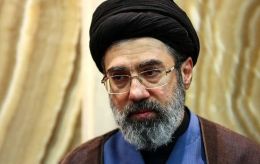Everyone against Sandu: Will Moldovan elections lead to Russian comeback
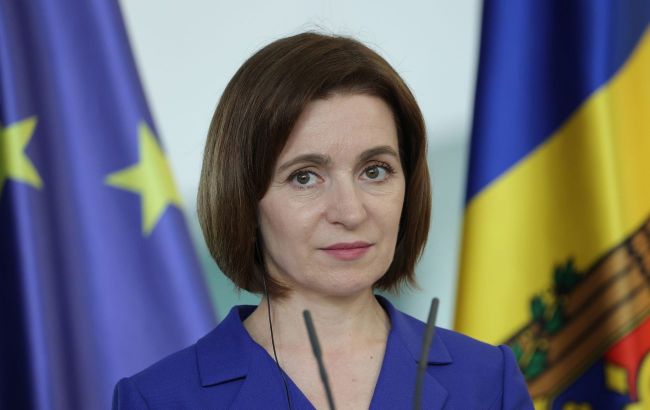 President of Moldova Maia Sandu (Getty Images)
President of Moldova Maia Sandu (Getty Images)
This Sunday, October 20, Moldova will hold presidential elections and a referendum on joining the EU. What the candidates' chances are, and how a potential resurgence of pro-Russian forces might threaten the country - in the RBC-Ukraine article below.
Contents
- Sandu and the opposition's plans for elections
- Referendum as a political tool and symbol
- What's ahead
On September 20, Moldova will hold presidential elections, which carry more weight than usual. The outcome will reveal an answer to a crucial question: will the Kremlin secure yet another political victory on Ukraine’s southern borders?
For Ukraine, a potential loss for the current pro-European president, Maia Sandu, would undoubtedly mean the emergence of a new problem from the south.
"This would significantly complicate interaction with the neighboring republic. It could worsen the situation regarding bilateral relations and the favorable agreements regarding the transit of Ukrainian goods, including by rail, through Transnistria to southern Ukrainian ports used for export. There will also be issues with arms supplies to Ukraine," said political analyst and managing partner of PGR Consulting Group LLC, Ruslan Rokhov, to RBС-Ukraine.
At the same time, Moldova provides Ukraine with limited humanitarian aid and virtually no military support. Even the sensitive issue for Kyiv of the de facto Russian satellite — self-proclaimed Transnistria — is mostly avoided by most Moldovan politicians. However, President Maia Sandu publicly and regularly expresses her support for Ukraine.
One reason for this emphasized neutrality is that Moldova remains politically divided. Pro-Russian forces and Kremlin agents, either openly or covertly, still wield significant influence in the country.
Sandu and the opposition's plans for elections
In general, the pre-election situation in Moldova can be described as "Maia Sandu’s race for a second term with obstacles." It’s a test of trust in Moldova's pro-European leadership, as Maia Sandu has been president since 2020. Her ratings indeed give her a serious chance of victory.
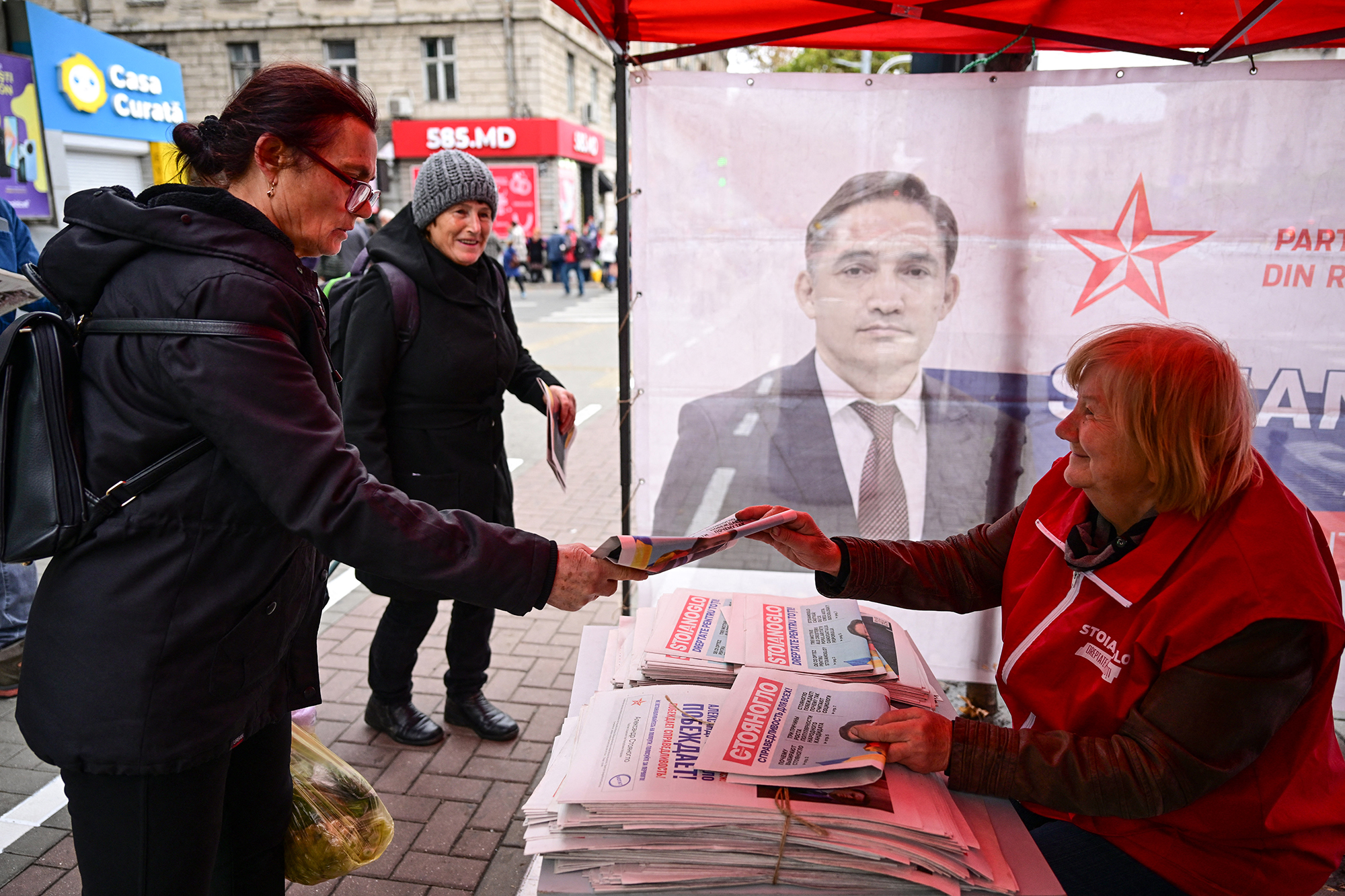
Campaigning for Alexandr Stoianoglo (photo: Getty Images)
According to an Aspen Institute/Watchdog Moldova poll from October 7, Sandu holds a rating of 36.1%. In second place is the Socialist Party candidate, former prosecutor general Alexandr Stoianoglo, with 10.1%, followed by populist Renato Usatii with 7.5%. Independent candidate Irina Vlah, the former governor of Gagauzia (an autonomous region in southern Moldova), has 4.1%.
All three of Sandu’s rivals were previously linked to Russia, though they are not highlighting this connection now.
"There’s no overt pro-Kremlin narrative in this campaign, though judging by the candidates' comments, their promises, and their main slogans, you can tell what values they stand for. For example, none of the candidates, except Maia Sandu and Octavian Țîcu, mention their stance on what’s happening in Ukraine. This allows us to categorize them as Putinversteher," political analyst and former Moldovan representative to the Council of Europe and the UN, Alexei Tulbure, told RBC-Ukraine.
Putinversteher is a German term meaning "those who understand Putin." It’s a general label for pro-Russian forces in Europe, from Germany's AfD to Marine Le Pen's National Rally in France and other far-right or far-left parties. Candidates from these political forces advocate for unconditional peace and a ceasefire, which ultimately means Ukraine's capitulation and peace on Russia's terms.
However, as polls show, Maia Sandu is not garnering the over 50% of votes needed to win in the first round. And this is exactly what the opposition is counting on. Pro-Russian forces have chosen a strategy of going into the election in multiple columns, knowing Moldova's political realities, where candidates can be easily disqualified from the race.
For instance, this happened in November 2023, two days before local elections. Moldovan Prime Minister Dorin Recean signed a decision to disqualify the Chance party from the elections and cancel the registration of all its candidates. This party belongs to Ilan Șor, a notorious fugitive oligarch convicted in Moldova for his involvement in the theft of €1 billion from the banking system, currently hiding in Moscow.
Earlier, Șor led a party that bore his name — Șor. Last spring, Moldova’s Constitutional Court declared it unconstitutional. However, Șor had prepared for this by buying a backup party, Chance, with the same symbols as Șor. Even after the second party was disqualified, it’s not the end for Șor, as he has backup candidates ready. In Moldova's political landscape, such moves, regardless of how one views them, have been one of the few ways to block openly pro-Russian forces.
For the presidential election, Șor tried to push a new candidate, Vasile Bolea, and create a third-party bloc called Victory. However, both the candidate and the party bloc were denied registration.
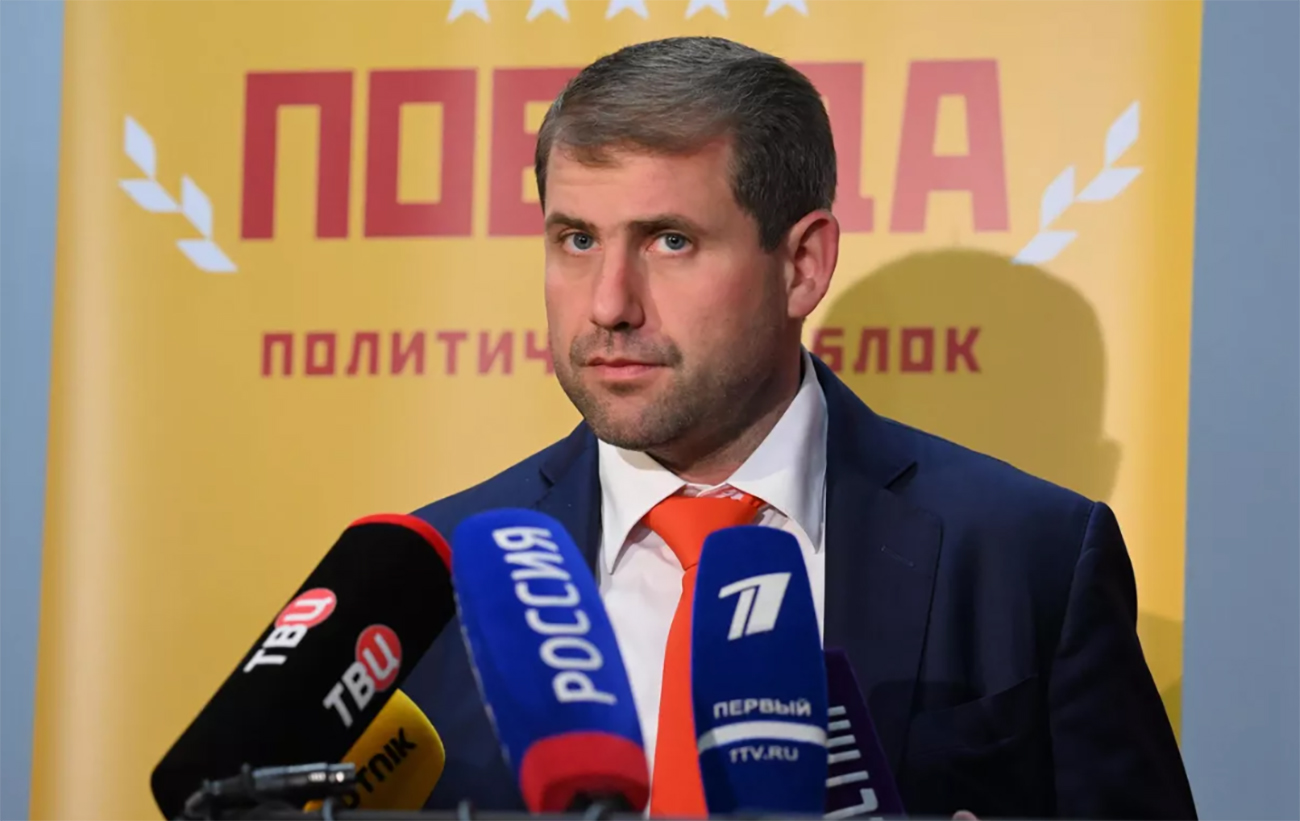
Ilan Șor during the presentation of the Victory political bloc in Moscow (photo: Russian media)
"If a single Kremlin-backed candidate were known, Moldova’s current government would have disqualified them, as happened with Vasile Bolea, who was directly affiliated with the party group overseen by Ilan Șor," said Rokhov.
According to him, Ilan Șor remains the primary financier of Russia's political revanche in Moldova. He acts as an administrator in organizing electoral networks to buy voters.
"He has a network of over 130,000 Moldovan citizens who receive monthly payments totaling around $15 million. This doesn't include spending on mass media, controlled Telegram channels, propagandists, and campaign offices," said the expert.
On election day, all 130,000 are expected to vote for the candidate chosen by Șor's coordinators.
These facts have become known thanks to investigations by journalists and Moldovan authorities.
Thus, Maia Sandu faces a group of pro-Russian candidates that cover most of the electoral spectrum. In the event of a second round, they are expected to unite behind one candidate who remains in the race. The most likely candidate to advance would be Alexandr Stoianoglo, the former Prosecutor General of Moldova. He was nominated by the Socialist Party, led by the pro-Russian ex-president of Moldova, Igor Dodon.
Despite his modest rating of just over 10%, Stoianoglo has a real chance of winning. In the second round, anti-ratings play a significant role, as voters tend to vote not so much "for" as "against." On the other hand, a 130,000-strong electoral network is a substantial figure, even for a large country like Ukraine. In much smaller Moldova, it accounts for about 10% of the electorate.
Referendum as a political tool and symbol
To avoid falling into such a trap, Maia Sandu's team is betting on a first-round victory. Her "clean" ratings don't allow for this. Therefore, one way to boost turnout is to bring as many of her voters to the polls as possible. This is a crucial factor, as voter turnout in Moldovan presidential elections is usually around 50%. This means that nearly half of the supporters of any given candidate stay home. To mobilize this reserve, Sandu’s team has announced a referendum on EU membership, to be held simultaneously with the first round of the elections.
"We can say that holding a referendum alongside the presidential election is a political maneuver to link the European choice with the victory of a specific candidate for president. This increases the likelihood of a first-round win," said Rokhov.
According to CBS-Axa polling, 63% of Moldovans support the European course, while 32% are against it, and 3.2% remain undecided. The proportion planning to vote in the referendum stands at 68.3%. However, whether these votes will be enough for a first-round victory remains an open question until election day.
While the referendum is consultative, it will have significant symbolic importance even in this form.
"If the referendum fails now, it will allow opponents of European integration and the Kremlin to intensify propaganda efforts in Moldova, claiming that the government is dragging the country where the people don’t want to go. If the referendum succeeds, it will strengthen the pro-European course and provide new momentum to pro-European parties," said Tulbure.
The opposition is working to undermine the referendum using the same voter networks and aggressive propaganda. However, it lacks unity. According to Tulbure, some pro-Russian forces are calling on people to participate and vote, while others are urging voters not to take the ballot at all.
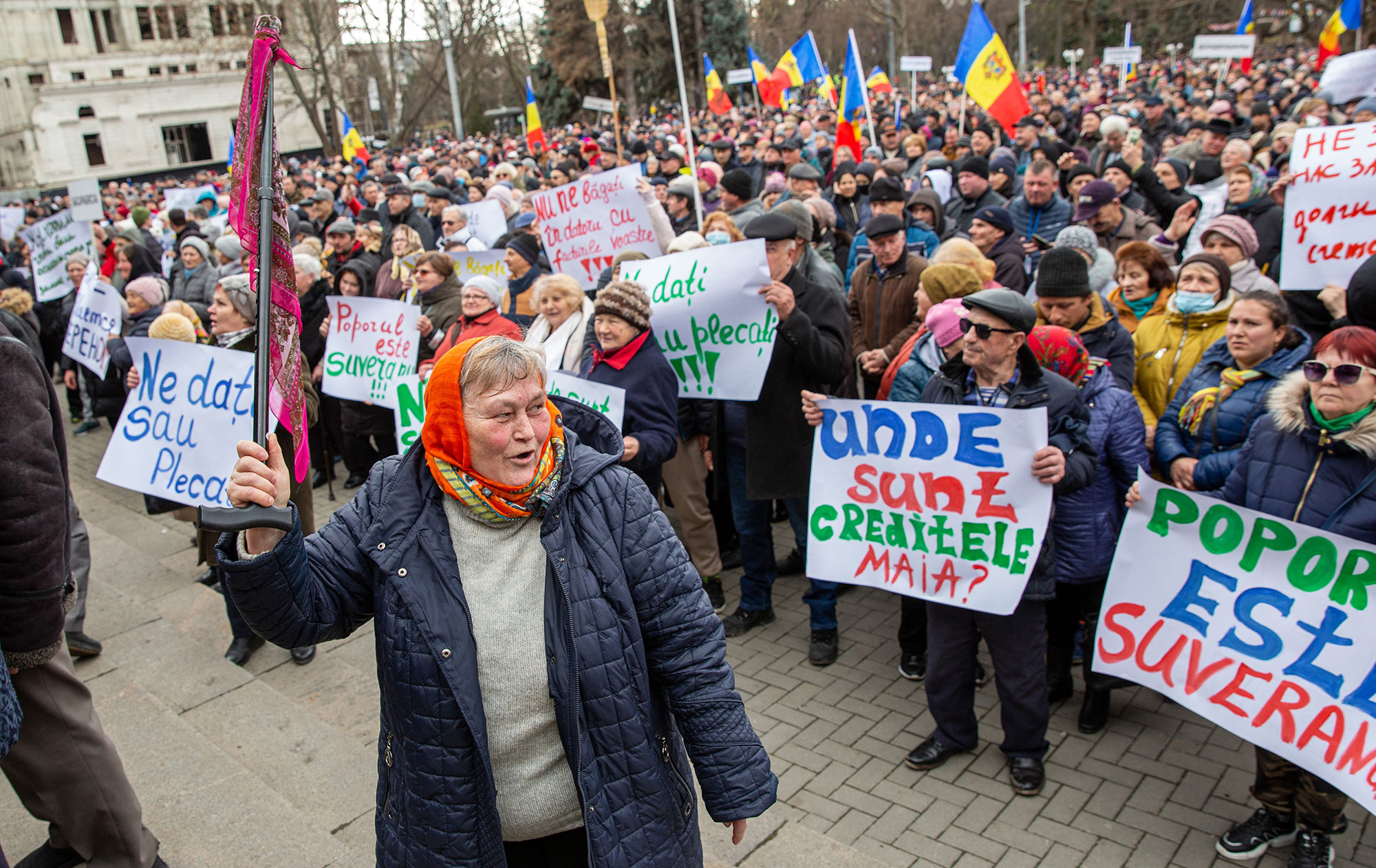
Protest against Moldova's pro-European course organized by the Șor party (photo: Getty Images)
The issue of Transnistria has also resurfaced in the context of the referendum. The first attempt to destabilize Moldova through this unrecognized republic occurred in March of this year. At that time, the "congress of local deputies" in Transnistria appealed to Russia, as well as other countries and organizations, for protection, allegedly due to an economic blockade imposed by Moldova. This appeal, however, went unanswered, largely because local Transnistrian elites were reluctant to fully engage in the conflict at the Kremlin's behest.
Now, Transnistria is accusing Moldova of ignoring the voices of residents from the unrecognized republic in the upcoming referendum. Moreover, in a statement from Transnistria’s foreign ministry, there is even mention of potentially holding its own referendum.
Moldovan authorities have dismissed these claims as "manipulation, likely orchestrated by external forces." At the same time, around 30 polling stations will be set up near Transnistria in the so-called security zone to accommodate Transnistrian voters.
While the "Transnistrian card" hasn’t been actively played in the presidential election, it cannot be ruled out as a factor in the future.
What's ahead
Regardless of who wins the presidential election, Moldova’s political turbulence is expected to continue for at least another year. Following the presidential vote, parliamentary elections will take place. These are officially scheduled for the fall, though RBC-Ukraine's sources do not rule out an earlier date.
"It’s the parliament that forms the government and, in practice, determines Moldova’s official policies on all domestic matters. And here we see significantly greater risks than in the presidential election. If Sandu’s chances of winning the presidency are 50/50, her party’s ability to form a majority in parliament, as they did last term, is close to zero," says Rokhov.
Currently, Maia Sandu’s PAS party has reached an electoral ceiling of 30-33%, meaning it will need allies to form a coalition. The problem is that there are currently no other pro-European parties capable of surpassing the electoral threshold.
Meanwhile, opposition forces that have gained attention during the presidential campaign stand a strong chance of entering parliament. Moreover, Șor's electoral networks allow him to bring in his people under any party banner.
"Therefore, it is in Ukraine’s interest for new political forces to emerge in Moldova, positioned in the electoral center or on the right, so they can enter parliament. This would give PAS a chance to form a pro-European majority," says Rokhov.
At present, much is at stake in Moldova, and the coming months could see even more dramatic shifts that will require swift reactions from Kyiv.
Sources: data from sociological surveys, Moldovan media outlets such as NewsMaker, Balkan Insight, Reuters, and commentary from political analyst and managing partner of PGR Consulting Group LLC Ruslan Rokhov, as well as political analyst and former Moldovan representative to the Council of Europe and the UN, Alexei Tulbure.


